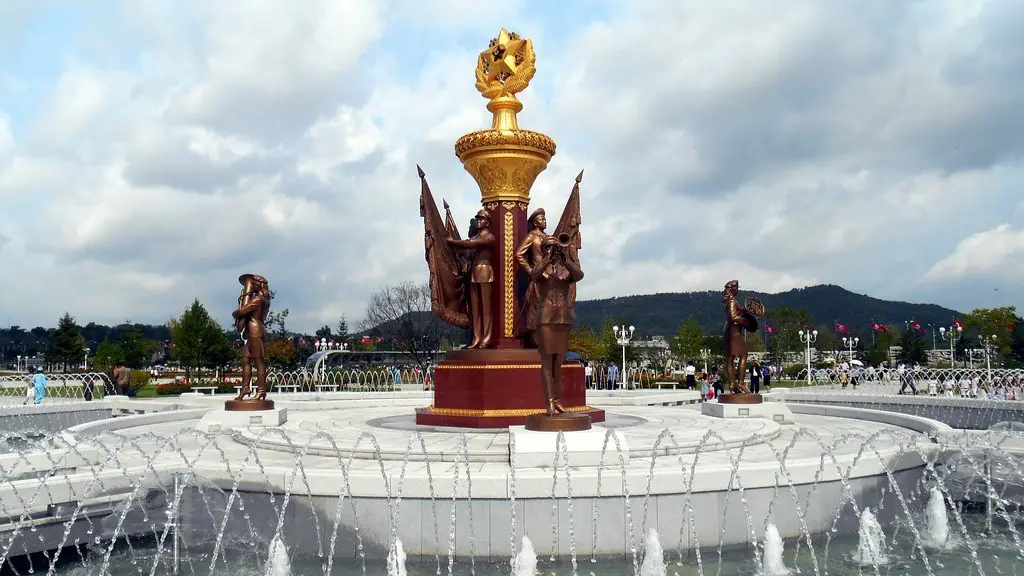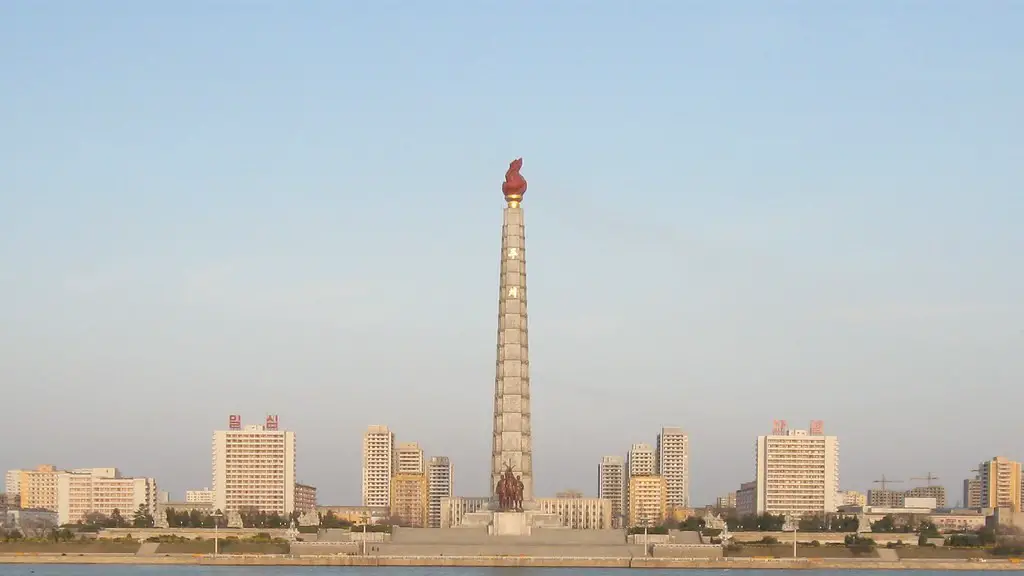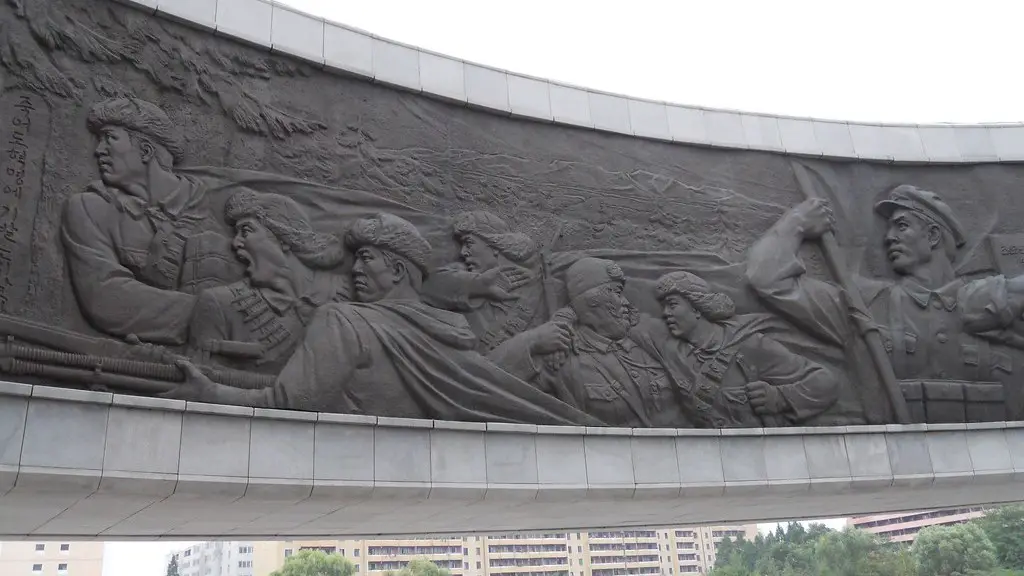North Korea’s withdrawal from the Nuclear Non-Proliferation Treaty (NPT) in 2003 stirred up strong international protest. In October 2002, the United Nations General Assembly voted overwhelmingly to urge North Korea to observe full compliance of the Treaty. The NPT, initially signed in 1968, is an international agreement that seeks to reduce the global threat posed by nuclear weapons and encourages cooperation and development of nuclear energy for peaceful purposes.
The decision to withdraw showed that North Korea was undaunted by international condemnation and did not fear the economic and political repercussions of the move. Knowing it faced almost certain sanctions, North Korea still made the calculated choice to drop out of the NPT in order to further its own interests.
Much of Pyongyang’s decision to withdraw from the NPT stemmed from their increased paranoia following the Iraq War of 2003. North Korea was already deeply suspicious of the international community and U.S. foreign policy. The perceived double standards of the United States, which allowed Iraq to hold onto its own unconventional weapons and yet sought to prevent North Korea from having their own, vehemently antagonised North Korea.
Domestically, North Korean leader Kim Jong-Il also saw strategic and tactical advantages in withdrawal from the NPT. He knew that indigenous nuclear capability put his regime in a stronger negotiating position with the United States. It also gave North Korea much needed leverage in other important negotiations such as economic aid, diplomatic recognition, and the utilization of its various resources.
The withdrawal of North Korea from the NPT had a profound impact on global politics. By using their nuclear arsenal as a “bargaining chip”, North Korea was able to win concessions from the United Nations which, in turn, allowed them to gain more respect and power in the region.
It also changed the United States’ approach to nuclear diplomacy and power. North Korea’s withdrawal from NPT forced the U.S. to re-evaluate its approach to nuclear policy, and to take a harder line in dealing with countries that had ambitions of developing their own nuclear weapons.
Political and Diplomatic Trends
Though North Korea withdrew from the NPT, the move itself did not result in any significant alteration in the political and diplomatic trends that were being observed in the region at the time. In contrast, the withdrawal of North Korea from the NPT initiated a period of increased tension between Pyongyang and Washington. This tension has continued to this day, as the two nations continue to disagree on a variety of issues.
The withdrawal of North Korea from the NPT has had a negative effect on the global nonproliferation regime. The NPT was designed to limit the spread of nuclear weapons, and prevent their proliferation to rogue nations. North Korea’s withdrawal from the treaty was seen as a repudiation of the principles of the NPT, and an example of the failure of the international community to limit the spread of nuclear weapons.
The withdrawal of North Korea from the NPT has also dramatically reduced the effectiveness of the United Nations in trying to contain the North Korean nuclear threat. Since North Korea withdrew from the treaty, the United Nations has had little leverage to persuade Pyongyang to rejoin the NPT. This has led to a situation in which North Korea is virtually free to continue to develop its nuclear weapons, a situation that has only increased tensions between the two countries.
External Perspectives
International experts have raised many questions about North Korea’s withdrawal from the NPT. One of the most commonly asked questions is whether or not North Korea really did want to preserve its sovereignty and protect its national interest, as its officials maintain, or whether the withdrawal was made simply to gain attention and gain international attention.
Some experts have argued that North Korea is playing a game of “brinkmanship” in which the threat of nuclear weapons use is used to gain concessions from the U.S. and other countries. While there is no definitive answer, the withdrawal of North Korea from the NPT has raised questions about whether or not the U.S. needs to alter its policy of deterrence in dealing with rogue states that are armed with nuclear weapons.
Another troubling question is what North Korea’s withdrawal means for other countries that have signed the NPT. Does North Korea’s decision to withdraw signal potential disregards for the obligations of the Treaty, or will other countries now see it as a viable way out of the Treaty? These are questions that must be examined in the near future.
Social Impact
The withdrawal of North Korea from the NPT has had far-reaching social implications. Many countries that are signatories of the NPT now view North Korea with a great deal of suspicion. Moreover, some countries, including China, have accused North Korea of double standards in stating its motives for withdrawal, as evidenced by the fact that the country embarked on a series of clandestine nuclear activities even after walking away from the treaty.
This, in turn, has led to a deep mistrust between neighbours, furthering divisions in the region. Additionally, North Korea’s nuclear program is seen by many observers as an example of reckless militarism, and as a show of power intended to intimidate neighbouring countries. This has had a detrimental effect on regional security and stability.
The withdrawal of North Korea from the NPT has also had a profound effect on the global economy. Fears of a nuclear conflict on the Korean peninsula have had a destabilizing effect on the world’s markets, resulting in a surge of oil prices, a decrease in worldwide economic activity and a general atmosphere of uncertainty.
Environmental Impact
The environmental impact of North Korea’s withdrawal from the NPT has been largely ignored in the debate surrounding the issue. It is feared that the North’s nuclear weapons could have devastating consequences on the environment if ever deployed. The radiation released by the weapons could potentially contaminate vast tracts of land, while the resulting fallout could have far-reaching effects on public health.
Moreover, there is a danger posed by North Korea’s increasing stockpile of enriched uranium. If mishandled or used in a nuclear blast, the amount of radiation released into the environment could be catastrophic. Should North Korea’s nuclear weapons fall into the wrong hands and be used for malicious purposes, it could seriously undermine international security and the stability of the region.
International Responses
The international community has been largely divided in their approach to the situation. While some countries, such as China and Russia, have been more willing to tolerate North Korea’s behaviour, the United States and its allies have adopted a hard-line stance. The US has strongly advocated for “complete and verifiable disarmament” from North Korea, as well as tough sanctions in order to prevent the proliferation of nuclear weapons.
In response to the escalation of tension, the United Nations Security Council passed Resolution 1718 in 2006, which imposed sanctions on North Korea and demanded that Pyongyang refrain from developing nuclear weapons and remaster negotiations in order to disarm the country. This was followed by the Six Party Talks in 2007, in which North Korea agreed to disable its nuclear facilities. Despite these efforts, North Korea has yet to prove its commitment to disarmament, and the situation remains highly unstable.
Conclusion
In conclusion, North Korea’s decision to withdraw from the NPT was an unprecedented move. It was met with international outrage and condemnation, and has had significant repercussions for international security, the global economy, and the environment. While there have been diplomatic efforts to contain the situation, North Korea’s continued refusal to comply with international agreements and disarm its nuclear program has proved to be a source of international tension, and a significant obstacle to peace in the region.





